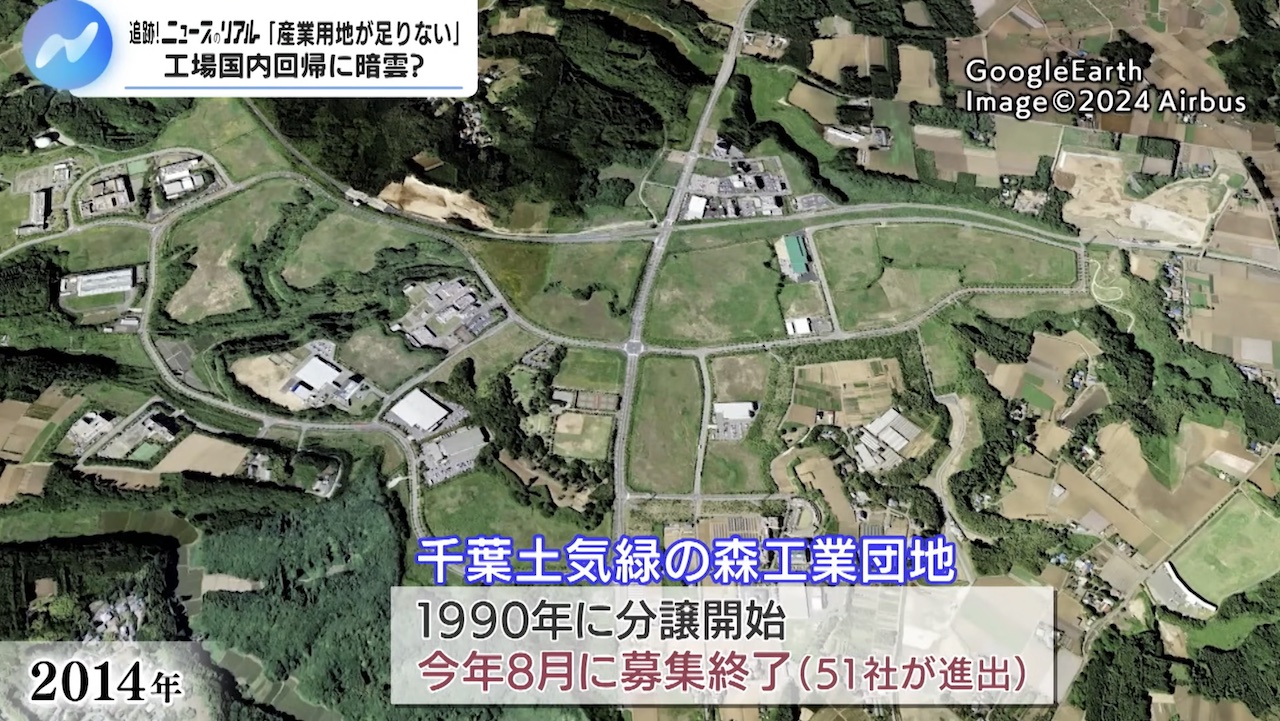TOKYO, Oct 21 (News On Japan) - With the weakening yen and growing demand for semiconductors, Japan's manufacturing industry is experiencing a resurgence. New industrial clusters, such as those in Kyushu's 'Silicon Island,' are emerging. However, a shortage of suitable 'industrial land' - land with convenient transportation links and easy access to materials - is becoming increasingly evident.
The development of large-scale industrial parks was rapid during Japan’s period of high economic growth, driven by national initiatives. These parks provided ample land for industries to set up their facilities. However, following the economic bubble and subsequent rise in the yen, many businesses relocated their production bases to China and Southeast Asia, leaving industrial land unused.
Yet, recently, signs of change have appeared. In Chiba City's Midori Ward, a bustling industrial park spans an area of roughly 160 hectares, equivalent to 34 Tokyo Domes. Factories and research facilities are rapidly filling the available space, with more than 50 companies setting up operations. This industrial park, which saw stagnation following the bubble burst, is now fully occupied.
Even more industrial land, about 50 kilometers away, is also seeing high demand. The Chiba prefectural government reports that inquiries from companies looking to secure industrial land have increased by 20% in the past five years, receiving around 150 inquiries per year. A prefectural official expressed hope that this could create job opportunities and boost local economies.
Nevertheless, Japan is facing an overall shortage of industrial land. The Japan Industrial Location Center, a foundation established in 1962 to consult on industrial land development, attributes the shortage to the continuous depletion of available land. During the bubble and the global financial crisis, excess land remained in stock, but as companies resumed domestic operations, that supply dwindled. Local governments, wary of financial risks, are hesitant to develop new industrial parks, leaving them with a significant shortage.
The lack of experience in industrial land development, coupled with a dwindling workforce knowledgeable in the field, has made it even harder to expand the supply. This problem has persisted over the past three decades, with many municipalities now uncertain about how to restart industrial land development from scratch.
To tackle this issue, the Japan Industrial Location Center has been dispatching experienced personnel to help local governments across Japan. In Nagano, a 11-hectare site has already been secured for semiconductor-related manufacturers, with plans to attract more companies to boost the region's economy.
Professor Kazuo Kadokawa from Tokai University’s Department of Political Economy commented that the increasing demand for industrial land must be addressed, but the supply-side constraints remain a significant challenge. As companies show renewed interest in relocating production facilities domestically, the shortage of industrial land could hinder Japan’s economic revival efforts.
Source: テレ東BIZ
















